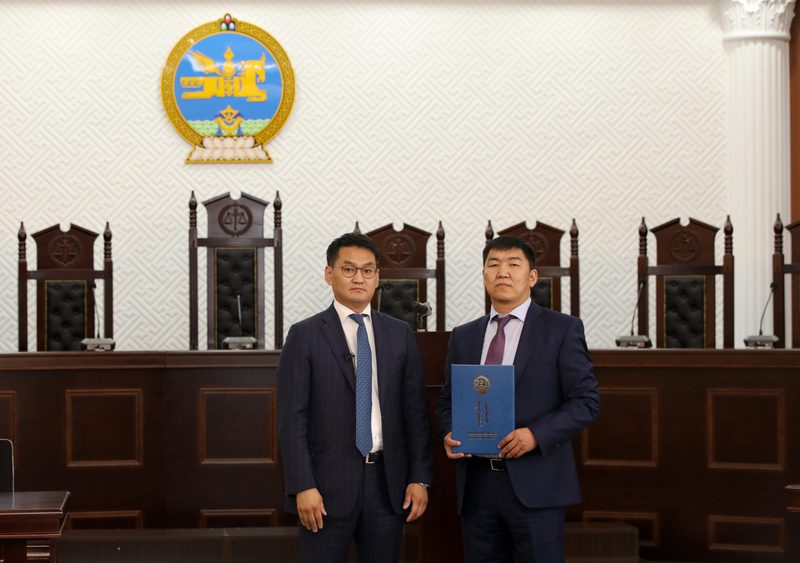Chamber for Civil Cases
Stricture:
- Civil Chamber for Cases consists 8 justices and each justice has an assistants.
- Activities of the Chamber for Civil cases are in accordance with the procedures prescribed by Law on Courts and Civil Procedure Law.
Main activity of Civil Chamber for Cases
The Supreme Court of Mongolia shall review and resolve civil cases in way of supervisory instance.
According to Article 176 of the Civil Procedure Law review complaints regarding the civil case, to the Chief Justice of the Supreme Court and present it to the Chief Justice;
Make draft of the law and official interpretation issued by the Supreme Court;
- Provide professional assistance to courts with the regard of the civil litigation process;
- Resolve civil cases at the first instance when required by law;
- According to the law on political party the Supreme Court is responsible on registration of political parties.
Review cases in way of supervisory instance:
Litigants, their representatives or advocates and third parties shall have the right to file a complaint by way of supervisory procedures with respect to a court decision that resolved a case by way of first instance procedures or to the review order Complaint for review shall be received by the court which resolved the case by way of the first instance procedures. The court that has received the complaint shall attach the document proving the payment of the state stamp duty and the complaint to the case and shall send it to the Supreme Court of Mongolia within 3 days in the capital city and within 14 days in the rural areas. The person filing a complaint for review shall be subject to pre-payment of the state stamp duty.
Complaint for review shall be filed based on the following alleged grounds:
- Court did not apply the applicable law, applied the law which should not be applied, applied incorrect interpretations of the law or applied the law regulating similar relations incorrectly;
- Legally established procedures for resolving a case were violated.
A case shall be resolved at the court session of supervisory instance within 30 days after the date of receipt.
 Монгол
Монгол English
English
